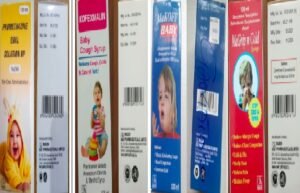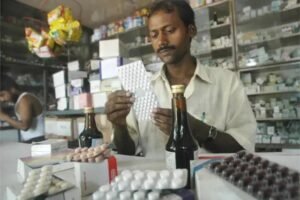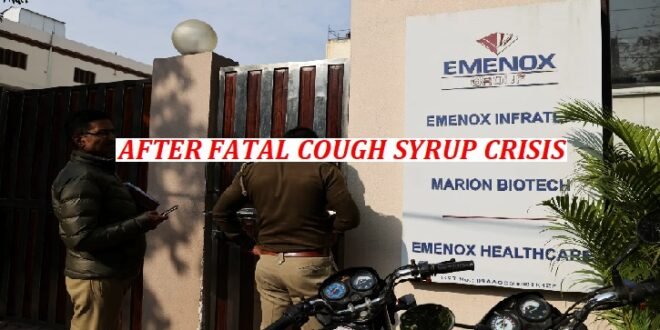18-10-2025
Bureau Report + Agencies
NEW DELHI: India has refused drug-makers’ requests to extend a year-end deadline for them to upgrade their manufacturing facilities to international standards, four sources said, amid public anger over the recent deaths of at least 24 children who consumed locally-produced cough syrup.
 New Delhi had in late 2023 ordered pharmaceutical companies to ensure their plants meet World Health Organization-recommended standards, which would require them to invest in protocols to prevent cross-contamination and enable batch-testing of samples, among other measures.
New Delhi had in late 2023 ordered pharmaceutical companies to ensure their plants meet World Health Organization-recommended standards, which would require them to invest in protocols to prevent cross-contamination and enable batch-testing of samples, among other measures.
The mandate was established after India-made cough syrups were linked to the deaths of over 140 children in Africa and Central Asia, severely denting India’s image as a “pharmacy of the world” while major pharmaceutical companies met a June 2024 deadline, smaller firms were granted a 12-month reprieve on their separate December 2024 target.
Some in India’s pharmaceutical lobby have, however, been pushing for more time, warning that businesses would be forced into bankruptcy by the costs but news that Sresan Pharmaceutical Manufacturer which made the Coldrif syrup that was linked to the latest deaths had not upgraded its facilities was a key factor in convincing government officials to ignore those appeals, said three of the people, who spoke on condition of anonymity to discuss non-public deliberations.
The decision was made in October after tests confirmed a high level of toxicity in some Coldrif syrups, according to two of the people. Drugmakers were informed of the decision at a conference on Thursday, one of them said.
Once the upgrades are completed, India plans to phase out a controversial rule introduced in 2023 that mandates additional testing of cough syrups at government-designated laboratories before export, one of the people said.
 That requirement does not apply to medication meant for domestic use. The recent deaths have reignited a public debate in India about selective enforcement of safety standards. The health ministry and the Central Drugs Standard Control Organization, the federal pharmaceuticals regulator, did not return requests for comment. Representatives for Sresan did not respond to repeated phone calls.
That requirement does not apply to medication meant for domestic use. The recent deaths have reignited a public debate in India about selective enforcement of safety standards. The health ministry and the Central Drugs Standard Control Organization, the federal pharmaceuticals regulator, did not return requests for comment. Representatives for Sresan did not respond to repeated phone calls.
If India had adhered to its original deadline, the latest deaths could have been avoided, said Udaya Bhaskar of the All India Drugs Control Officers’ Confederation, which represents pharmaceutical regulators. All the recent deaths were linked to a batch of Coldrif syrup made in May.
Bhaskar said he supported scrapping additional testing for exports once all labs were certified to WHO standards; “It’s not the government’s job to test every batch. That responsibility lies with the manufacturer. The government’s duty is to ensure compliance.”
Government tests found the syrup manufactured by Sresan contained 48.6% diethylene glycol (DEG), or nearly 500 times the limit set by India and the WHO.
DEG is sometimes “fraudulently or unintentionally” used in place of pricier pharmaceutical-grade solvents like glycerine and propylene glycol, according to an October 13 presentation on medical contamination by the Indian Pharmacopoeia Commission (IPC), which sets national drug standards.
The commission in October started requiring manufacturers to test oral liquids for the presence of DEG and another comparable substance, ethylene glycol, before sale.
An investigation in 2023 had exposed regulatory and legal gaps that allowed unscrupulous manufacturers to substitute DEG for pharmaceutical-grade propylene glycol.
 Pressmediaofindia
Pressmediaofindia




